ÖĞRENCİLER BİLE KOLESTEROLÜN KALP HASTALIĞININ SEBEBİ OLMADIĞINI ANLAMIŞLAR

Gencecik tıp fakültesi öğrencileri bile kolesterolün kalp hastalıklarının sebebi olmadığını anlamışlar.
Darısı, anlamayan, anlamaktan aciz olan, anlamamazlıktan gelen veya anlamak istemeyen doktor büyüklerinin, hocalarının başına!
***
The idea that high cholesterol causes heart disease is so widespread you’d have thought it was pretty much an established fact by now. High cholesterol is listed as one of the five main risk factors for heart disease by the British Heart Foundation [1], and the NHS public guidelines on cholesterol claim that “your risk of developing coronary heart disease rises as your blood’s cholesterol level increases” [2]. In supermarkets, you’ll find a significant array of spreads, yoghurts and cereals which claim to improve your cholesterol levels and decrease your risk of heart disease.
But what actually is the evidence that having high cholesterol, or high LDL (low density lipoprotein) levels, increases your chance getting heart disease? You may be surprised to learn that the studies available to us do not all point towards a causal connection between high cholesterol and heart disease. Different studies point towards a number of conflicting conclusions, and ultimately the picture is a lot more complicated than most media on the topic would suggest.
The association between cholesterol and heart disease
At first glance, it seems that we have substantial reasons to believe that high cholesterol and heart disease are closely linked. For one thing, we have a plausible-sounding explanation as to why they should be. This explanation posits that LDLs are the ‘bad’ type of cholesterol, which can stick to the inner walls of your blood vessels and potentially clog them, leading to heart conditions such as stroke, atherosclerosis, angina and coronary heart disease (CHD). Whereas HDLs (high density lipoproteins), are the ‘good’ type of cholesterol, and these have the opposite effect. [3]
There are some reasons to suggest that this hypothesis is correct. Firstly, there is evidence of a correlation between high cholesterol/LDL levels and heart disease. The Framingham Study, a prospective cohort study beginning with over 5,000 participants, published a paper in 1977 which concluded that higher HDL levels and lower LDL levels were associated with a reduced risk of coronary heart disease. [4]
In addition to this, some medical treatments which reduce cholesterol/LDL levels also reduce your risk of heart disease. Statins, for example are effective in both lowering cholesterol levels, and reducing the rates of CHD, cardiovascular disease (CVD) and stroke. [5]
Conflicting evidence
This evidence seems to point towards there being a causal connection between cholesterol in heart disease. However, a closer examination of the issue may make us sceptical of this conclusion.
Firstly, the evidence about the association between high LDL levels and heart disease is more complicated than it first appears. A follow-up from the initial Framingham study suggested that there was only an increase in mortality, by heart disease or other causes, in people with higher cholesterol levels under the age of 50 [6]. This is significant if we want to offer medication or lifestyle advice about preventing heart disease to those over 50 years old. A recent systematic review even suggests that patients over the age of 60 actually lived longer if they had higher LDL levels, directly contradicting the hypothesis that you are more likely to die of heart disease the higher your cholesterol levels are. [7]
Moreover, despite statins showing a correlation between lowered cholesterol levels and a reduced risk of heart disease, some other medications do not show this connection. Niacin, for example, is a cholesterol lowering drug which is known to decrease LDL levels, but has been shown to cause no significant reduction in risk of heart attack, stroke or mortality by heart disease [8] . Even more worrying is the case of Torcetrapib. This experimental drug was designed to reduce rates of heart disease by lowering patients’ LDL levels, but the research was discontinued early because it was linked to an increased risk of mortality and heart disease [9].
A causal connection?
You might be wondering how we ended up at this point, with significant amounts of evidence about cholesterol and heart disease pointing in completely opposite directions. There’s no straightforward answer to why the evidence about this problem is so messy, but one thing that I think should give us pause for thought is exactly what we mean when we talk about ’causes’ in medicine.
In the case of risk factors like cholesterol, a ’cause’ does not mean that the presence of this risk factor will always and invariably lead to a certain pathology. This depends on a number of other factors, like age, co-morbidities, lifestyle, and possibly plain luck. What we are actually trying to establish here isn’t nearly as straightforward as claims like “the TB bacterium causes tuberculosis”. Instead we are looking at a complex array of inter-related mechanisms, all of which may or may not lead to someone becoming ill. And when we are unclear about exactly how these mechanisms work or how they relate to each other, making predictions about health outcomes will inevitably be difficult and confounded.
Kaynak: https://www.students4bestevidence.net/cholesterol-and-heart-disease-whats-the-evidence/
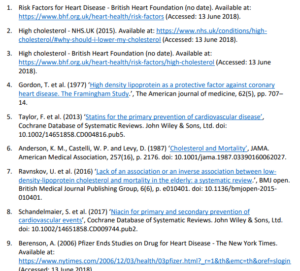
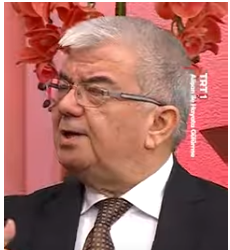



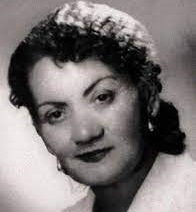



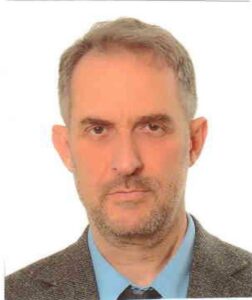
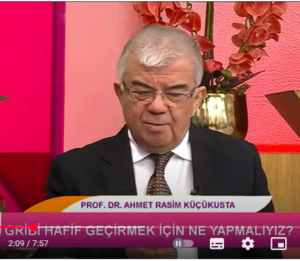



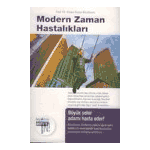

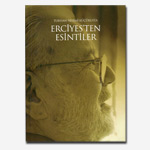

Burada tüm toplumumuz tarafından bilinmesi gereken çok önemli bir durum var. Okuyalım, öğrenelim, bilelim, farkında olalım, takdir edelim, minnet duyalım.
2011 yılı Türk Tıp Tarihi için çok önemli bir yıldır, bir milattır, bir dönemeçtir, bir dönüm noktasıdır, bir çağ atlamadır. İnsanlarımızın makus talihlerini değiştiren tarihi bir adımdır.
2011 yılı Türk Tıp Tarihi için MODERN TIBBIN sarsılıp GERÇEK TIBBIN kuruluş tarihidir.
Kasım 2011 tarihinde, ömürlerini halk sağlığına adamış birkaç idealist doktor, ilaç firmalarının finanse ettiği araştırmaların kolestrol açısından gerçekleri yansıtmadığını, kolestrol ilaçlarının zararlı olduğunu açıklayınca, Türk Kardiyoloji Derneği, bir basın toplantısı düzenleyerek ‘kolesterol ilaçlarını bırakın’ çağrısında bulunan bu hekimleri halk sağlığını tehdit etmekle suçlar. Onlara göre karşılarında 3 doktor buna mukabil onbinlerce doktor bir taraftadır. Hatta suç duyurusunda bulunurlar.
Bunun üzerine 4 cesur, bağımsız doktor, (Prof. Dr. Ahmet Aydın, Prof. Dr. Canan Efendigil Karatay, Prof. Dr. Ahmet Rasim Küçükusta ve Uz.Biyolog Mevlüt Durmuş) 2 Aralık 2011 tarihinde “Kolesterolle ile ilgili bilimsel gerçekler” konulu bir basın toplantısı düzenlerler. İlaca abonelik yaratılmaya çalışıldığını belirterek kolesterol ilaçları destekçilerine gerekli cevabı verirler.
2011 tarihli bu toplantı çok önemlidir, çünkü bu tarihe kadar hiçbir hekim; ilaç ve gıda endüstrisinin, modern tıbbın karşısına dikilip itiraz etme cesaretini gösterememiştir.
Evet Modern Tıbba bir başkaldırı olarak tarihe geçen bu basın toplantısı sadece kolestrol odaklı olsa da, ilerleyen tarihlerde diğer sağlık ve beslenme konularını içine alarak genişlemiş, güzel insanlarımızın sağlık umudu olmaya başlamış ve devam etmektedir.
Bu 4 bağımsız doktorun(Prof. Dr. Ahmet Aydın, Prof. Dr. Canan Efendigil Karatay, Prof. Dr. Ahmet Rasim Küçükusta ve Uz.Biyolog Mevlüt Durmuş) başlattıkları GERÇEK TIP eninde sonunda MODERN TIBBA realitesini kabul ettirecektir. Onlar ülkemizde tabuları yıkan birer halk sağlığı kahramanıdırlar.
Modern tıbbın her hastalığın ancak ilaçlarla tedavi edilebileceği saplantısından kurtulması idealine er geç ulaşılacaktır. Gerçek tıp temsilcilerinin yaptıkları çaba ve mücadeleler, sel sularına (modern tıp) direnmeye çalışanlar için tutunabilecekleri bir dal parçası gibi durmaktadır.
İleride bu tarihin belgeseli mutlaka yapılacaktır. Çünkü karşılıksız, çıkarsız, onurlu, şerefli bir insanlık mücadelesidir. Yapılacak belgeselde; Kasım 2011’de atılan bu tarihi adım sayesinde insanların en azından bir kısmının nasıl bir felaketin eşiğinden döndükleri büyük minnet duygusuyla anlatılacaktır.